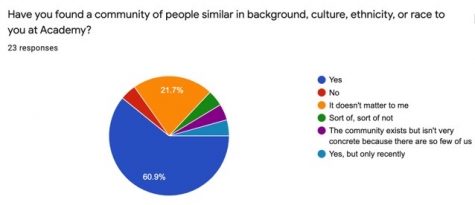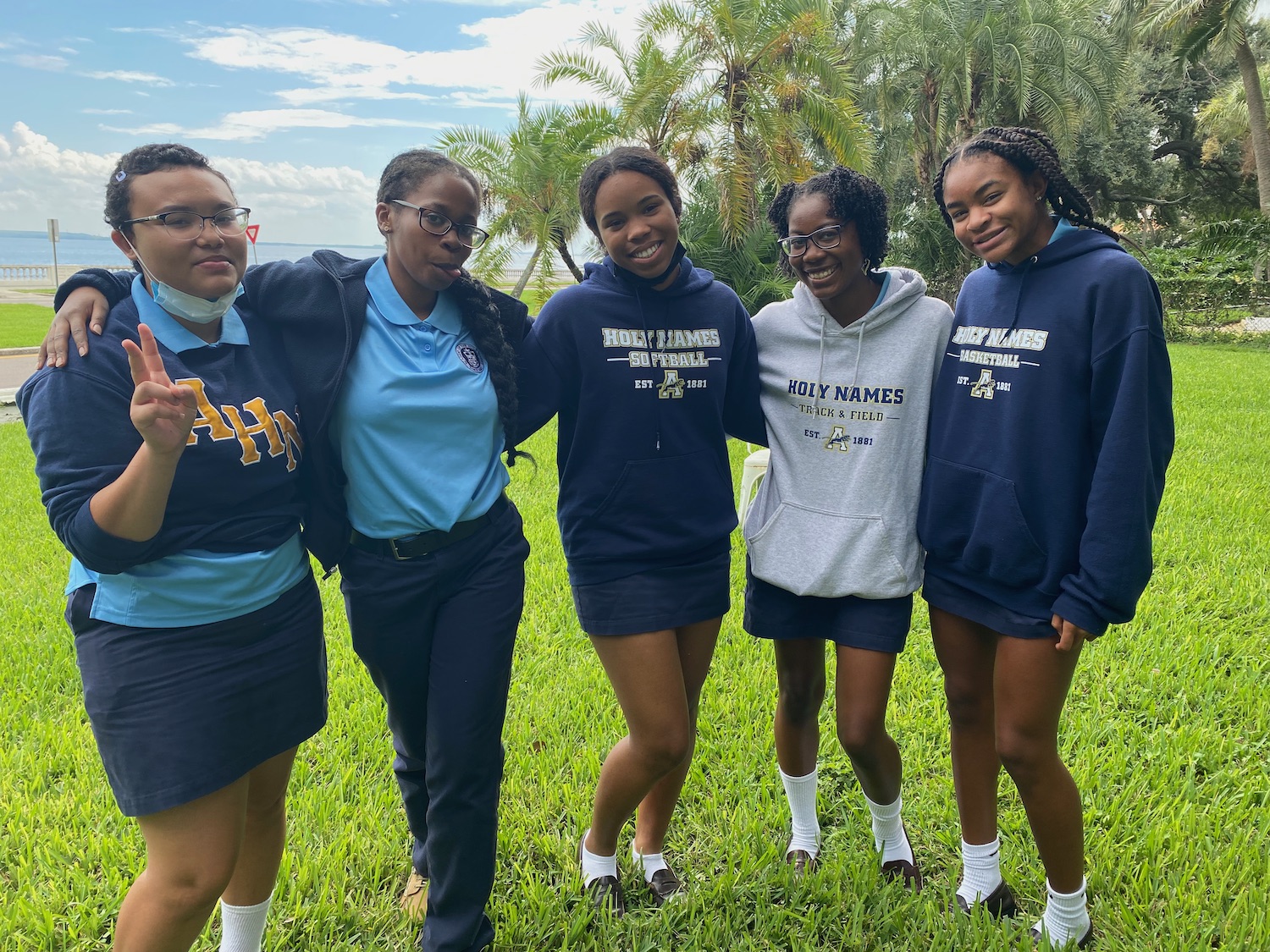Minority students on the importance of finding a cultural community within AHN
September 24, 2021
In a predominantly white institution, or PWI, minority students find a need to connect with other students of similar cultural backgrounds. Some minority students emphasize finding a community within Academy. They see the benefits of having someone that can relate to their struggles related to race, culture, or ethnicity.
“It is important to talk to people with similar experiences as you because they remind you that you are not alone in your struggles especially those involving race,” said Kyla Monts (‘23).
Some students of color feel comfortable speaking about their struggles with their peers who are not of the same culture or ethnicity. Yet, it may be difficult for them to find people outside of their race or ethnicity who can truly understand their struggles. This is why many minority students try to build a comfortable community of people who are similar to them. While these people may not be their best friends or the people they sit with at lunch every day, they are friends that they can rely on in times of uncertainty or social and political unrest.

Many students of color are most comfortable talking with other students of color about diversity and other race or ethnicity-related issues. This may be hard, however, because of the sparse distribution of minority students. It is common to only have one minority student of a certain race or ethnicity in a class. Madison Kwo (‘23) said, “Occasionally, we’ll do a discussion involving immigration or race in classes like English or Religion, and I’ll be the only POC present. Some people’s answers would just be so ignorant… “
America is always changing and people’s views change with it. The struggles of minorities are constantly coming in and out of the news, with the attacks on Muslim communities on 9/11 and the surge of AAPI hate crimes with the growth of COVID-19. America is constantly exposing the hate and struggles minorities face. There are always more articles, more research, and more news that people can use to educate themselves. It is difficult to keep up with everything going on. Minority students don’t expect their white friends to know all that is going on in their community and all the facts about the hate or prejudice they receive. Their white friends don’t experience their struggles, so the only way they can converse without ignorance is to educate themselves on those topics. Sometimes it’s easier to speak to other minority students who they know will understand. However, all students should strive to educate themselves about social and political happenings around the world. News sites such as BBC and The Associated Press give unbiased and up-to-date information.
Grace Carreja (‘23) said, “It’s nice to talk about things you relate to and be able to expand and talk about subjects, even if you don’t agree on them.” POWER (Powerful Outstanding Women Encouraging Respect) is a club that allows students to freely state their opinions and cultivate discussion and growth. Many students of color join this club to take part in the discussion and help raise awareness on some of the adversities our world is facing. In POWER, Sabrina Grayson (‘24) found it beneficial to talk to girls who related to the same struggles as her. POWER works as a safe space for everyone to share their opinions without judgment, while also raising awareness on current events and issues. POWER itself is a great example of a safe community built not just with minority students but with everyone who wants to be there.
As students of color in a PWI, it is common to feel misunderstood. Even if we are not being ostracized because of our race or ethnicity, some students of color internally feel like they are. America has built lots of separation between different races, cultures, and religions. These divides come from the founding of America, which was built with slavery and prejudice. We are still trying to repair the broken mends of the different types of people who make up the United States of America. Some teenagers of color, especially those who attend PWI’s, expect to be left out and have people who are against them. Even if the people around them aren’t looking at them differently, it sometimes feels like they’re different.
“I love POWER club because it’s a time outside of school where I can find people who think and have similar views to me. I found POWER club to be a safe space for me to talk to and just share opinions with my peers,” said Jayda Pinder (‘23).
We often expect that people are constantly thinking that we’re different because of our race or ethnicity. This is why it is so important to have a community of people that you can rely on and not feel judged by. It is hard to erase many years of expecting to be treated differently than white people. While we are different, we are essentially the same. We may have many different histories and influences, but at the root of our being, we are all one and the same.
Yet, this does not mean that we are not actually treated differently by some people. Many people are raised with prejudice or ignorant mindsets. Building communities is important to raise awareness of our struggles so that we can educate those who have not been educated before. Cultural communities are important for the comfort of minority students and to build solidarity between students who may feel as if they are alone.
Madison Kwo (‘23) said, “Last year around the time of the hate crime against Asian Americans in Atlanta, POWER organized a Zoom with some Asian students and alumni. After sitting at school feeling like I was the only one whose world this affected, it was so relieving to be able to talk to other Asians who knew what I was experiencing. It felt so validating.”

